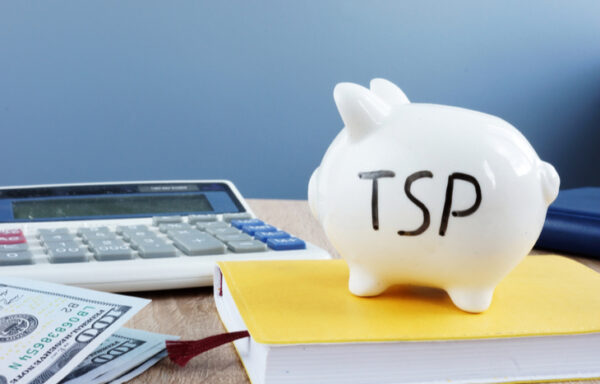How Does the Equity Market Work?
When companies need to raise money, they’re faced with two prospects: debt or equity. The equity market is a type of capital raising market that connects those willing to invest money with those that need capital. In general, it’s a way for companies to capitalize on the confidence of investors rather than add debt to the balance sheet. In even simpler terms, equity markets are any type of market where investors can buy shares in a company. This includes popular exchanges like the NYSE and Nasdaq.
In a broader sense, the equity market refers to the process of facilitating commerce. Companies need capital to fuel growth. Therefore, they get it from investors. As part of the growth, companies return value to shareholders, which inspires more confidence. This fuels new investment, which fuels new growth and perpetuates a capitalist cycle.
Equity markets, like most capital markets, benefit both buyers and sellers of equity. Here’s how it works.

What is Equity?
Equity is a stake in the success (or failure) of a company. A stock is an equity security that represents an investor’s ownership stake in a company’s net assets. For example, if a company is worth $1B and has 100M outstanding shares, you can buy equity in that company for $10. This stake becomes an investment vehicle, affording you certain rights as a shareholder.
The simplest benefit of equity is its growth opportunities. If you buy 50 shares of a company at $10 and the price rises to $20, you’ve doubled your money. You can sell your stake and immediately profit. Unfortunately, the opposite can also happen. If the share price falls to $5, you’ve lost half your investment.
There’s also the benefit of future profit as a shareholder. If the company becomes highly profitable, it may offer dividend payments, which entitle you to incremental earnings. Or, the company may offer a share buyback, repurchasing the shares you hold at a premium. In these cases, equity is a gateway to profit.
Finally, equity is great for diversification of assets. Holding your money in cash means losing out to inflation. Putting it in real estate means giving up liquidity. Investing in equity securities means growing your investment, while keeping it relatively liquid.
Types of Equity Products
When investors refer to equity products, they’re almost always talking about stocks. Stocks are created in the primary market through a company’s IPO. Then, they’re bought and sold in secondary markets to establish value. Typically, there are two types of stock:
- Common stock: Common stock represents everyday equity shares. They’re accessible to retail investors and don’t offer any special incentives, other than regular voting rights and dividends (if applicable).
- Preferred stock: Preferred stock often trades at a premium. It comes with special rights, such as stronger voting power or special dividends. Examples include founders’ stock or convertible shares.
Regardless of the stock type, it represents equity in a company. Investors can buy or sell shares as they please—usually as a trader (short-term) or a buy-and-hold investor (long-term). The goal is to leverage the success of a company into personal wealth through equity ownership.
How to Buy, Sell And Trade on The Equity Market
Being active in equity markets is one of the most accessible forms of investing. To participate, investors need to open an account with a brokerage. Securities list on exchanges, such as the NYSE or Nasdaq. Investors can search for companies on exchanges through their broker and place orders for stocks. This happens through the secondary market—the retail market.
Select investors—usually institutional investors—can participate in the primary market. This is where company equity first becomes available. With the help of investment banks and underwriters, the value of the company translates into a set number of equity shares at a set price. Primary market investors are the first purchasers of a company’s equity. They give the company its first infusion of capital. The resale of these shares facilitates the movement of that equity into the secondary market.
There are also OTC markets, where investors can buy equity directly from companies. OTC markets usually cater to smaller, up-and-coming or foreign companies that can’t list on exchanges. While part of the broader equity market, the OTC market typically gets its own recognition as a pillar in the greater scope of capital markets.
Key Equity Market Terms to Know
Planning on investing in equity securities? Get ready to learn a whole new language! There’s a lot of jargon that comes with equity investing. And even more slang. For example, here are a few of the most common terms to get to know:
- Share: A portion of equity in a company.
- Exchange: Where equity securities list and trade.
- Bid-ask spread: The buying and selling prices of a particular security.
- Market order: The directive issued to purchase equity shares in a company.
- Volume: The number of shares of a company that change hands daily.
- Market capitalization: The total value of a company based on outstanding equity shares.
- IPO: Initial Public Offering. The decision of a company to offer equity shares.
Learn the basics as you begin to invest in equity shares. In fact, the more familiar you become with basic terminology, the easier it becomes to understand the stock market.
The Basic Functions of The Equity Market
The function of the greater equity market is twofold. On the side of companies, it’s a medium to raise capital without taking on new debt. Companies get the infusion of cash they need to fuel growth and new ventures, without encumbering the balance sheet. On the side of investors, it’s a way to leverage the growth of a company into personal value. As the value of a company increases, so does the value of its equity shares.
The equity market plays an important role in everything from retirement investing to broader economic stability. To stay ahead of the latest retirement strategies, sign up for the Wealthy Retirement e-letter below. This daily report will give you expert stock analysis and retirement trends that can help you build financial independence as a retiree.
Most importantly, the equity market is a representation of fair market capitalism. Investors determine the value of companies through buying and selling of equity shares, while companies use investor funds to continually increase that value.
[adzerk-get-ad zone="245143" size="4"]




